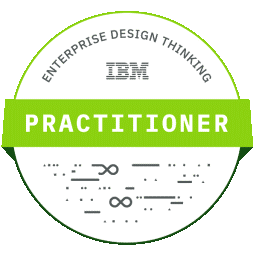Master in Business Administration
Key Points
UCW’s Master of Business Administration (MBA) program will prepare you for leadership on the global stage. This program is accredited by ACBSP. You will take the most challenging situations in stride, apply pragmatic solutions to the problems you encounter, and ultimately drive the success of an organization with your informed decision making.
We collaborate with digital leaders like Salesforce (Trailhead), Tableau, and IBM to add relevant digital components to our courses (see course structure below). This aligns with our digital vision and keeps you up to date with upcoming technology trends.



Program results
Career options
Academica Group has been surveying our MBA graduates 6 months after graduation (which will continue in 2020).
According to data from January 2020 of the graduates who participated in the study:
- 100% postgraduate employment in 6 months
- 88% have found a job within 3 months of graduation
- 67% have found a job within a month of graduation.
Our alumni work for some of the leading organizations in the world such as;
|
|
|
|
|
|
|
|
|
|
|
|
|
|
|
Learning method
UCW brings together students from around the world, leading to an enhanced learning environment. Students learn not only from program leaders, but from each other. Students present different knowledge about topics, depending on their culture and background.
Our MBA program is taught by a team of dedicated and highly trained professors with many years of experience in the industry. You will learn through a combination of the following methods:
- Lectures and class discussions.
- Study academic literature.
- Taking a closer look at the case studies.
- Listen to the experiences of classmates.
Program structure
The program is divided into four levels that will progressively develop your skill set, until you are able to handle the most complex problems. Team activities are an intrinsic part of the MBA, reflecting the need for team skills in modern business and providing a collegiate learning environment.
The program has been expanded to allow you to acquire more specific knowledge and skills by choosing your 3 electives from one of the following subject areas: Leadership , Marketing or Finance .
The program ends with a major research project designed to showcase your newly acquired skills in a real world environment.
Admission requirements
A Bachelor’s degree from a recognized university officially translated into English, with a cumulative GPA of 3.00 on a scale of 4.33 (or equivalent) or better and have one of the following:
- Acceptable score on a Graduate Management Admission Test (GMAT) or Graduate Registration Exams (GRE) written in the last five years.
- An appropriate Canadian professional designation or equivalent international designation (for example, CPA, CA, CGA, CMA, CHRP, or P.Eng).
- A Bachelor of Business Administration (BBA) or Commerce (BComm) or equivalent.
- A minimum of three (3) years of documented professional or managerial experience.
Applicants who do not meet all of the above academic and professional requirements may also qualify to enter the MBA program after completing the MBA Foundation program.
Via MBA-ACCA
ACCA students can now complete their ACCA qualification at the same time they earn their University Canada West MBA. Students who have passed or have exemptions for the first nine ACCA jobs are now eligible to directly join the MBA program and / or complete their ACCA Strategic Professional Qualification consecutively.
Completing the ACCA itinerary requires students to take 13 exams. There is faster MBA completion, with credit transfers for up to three UCW courses.
Fluency in English
English is the language of instruction at University Canada West. If your first language is not English, you must take proof of English proficiency, such as an academic IELTS score of 6.5 or better with a minimum of 6.0 in the writing band, or equivalent. More information is available in the English Proficiency section of this website.
You can complete English courses (University Access Program) to meet the English proficiency requirements of the MBA / MBA Foundation program.
Learn more about our educational offer
Request your quote
An advisor will contact you by phone and email within the following hours

